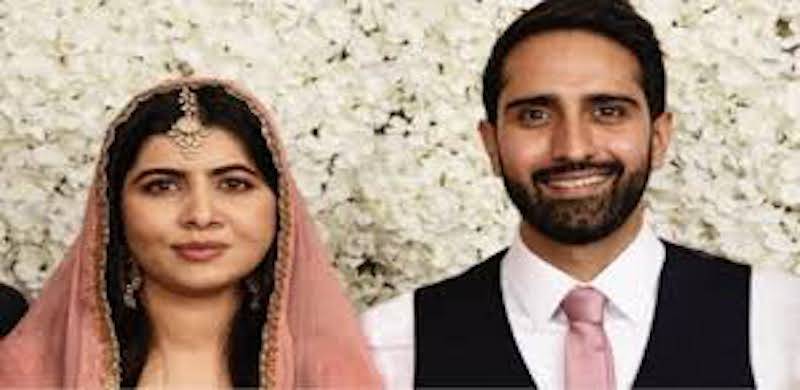
Nobel laureate girls rights activist Malala Yousafzai who recently tied the knot, wrote a piece in Vogue Magazine about her wedding and her new companion. She began by sharing how she often told people that she did not want to get married "...or at least not until I'm 35".
“I wasn’t against marriage, but I was cautious about its practice. I questioned the patriarchal roots of the institution, the compromises women are expected to make after the wedding, and how laws regarding relationships are influenced by cultural norms and misogyny in many corners of the world. I feared losing my humanity, my independence, my womanhood – my solution was to avoid getting married at all," she wrote.
Malala added that her questioning these traditions was only natural. "I couldn’t call myself a feminist if I didn’t have reservations [about marriage]," she said, reminding her readers of the grave issue of underage marriages.
"For most of these girls, marriage is not a fulfilling partnership – it is servitude." Malala also shared with the readers that growing up in the north of Pakistan, girls were taught that marriage was a substitute for an independent life. "If you don’t study, get a job and build a place for yourself, you must get married soon. You failed your exams? You can’t find work? Get married!"
She said that in light of these 'dark realities', she found it hard to think of the concept of marriage. "I said what I had so often said before – that maybe it was possible that marriage was not for me."
She however added that she thought to herself that there could be another way [to find happiness in marriage]. "With education, awareness and empowerment, we can start to redefine the concept of marriage and the structure of relationships, along with many other social norms and practices," Malala wrote.
She went on to say that culture is made by people – and people can change it too. "My conversations with my friends, mentors and my now partner Asser helped me consider how I could have a relationship – a marriage – and remain true to my values of equality, fairness and integrity."
“I wasn’t against marriage, but I was cautious about its practice. I questioned the patriarchal roots of the institution, the compromises women are expected to make after the wedding, and how laws regarding relationships are influenced by cultural norms and misogyny in many corners of the world. I feared losing my humanity, my independence, my womanhood – my solution was to avoid getting married at all," she wrote.
Malala added that her questioning these traditions was only natural. "I couldn’t call myself a feminist if I didn’t have reservations [about marriage]," she said, reminding her readers of the grave issue of underage marriages.
"For most of these girls, marriage is not a fulfilling partnership – it is servitude." Malala also shared with the readers that growing up in the north of Pakistan, girls were taught that marriage was a substitute for an independent life. "If you don’t study, get a job and build a place for yourself, you must get married soon. You failed your exams? You can’t find work? Get married!"
She said that in light of these 'dark realities', she found it hard to think of the concept of marriage. "I said what I had so often said before – that maybe it was possible that marriage was not for me."
She however added that she thought to herself that there could be another way [to find happiness in marriage]. "With education, awareness and empowerment, we can start to redefine the concept of marriage and the structure of relationships, along with many other social norms and practices," Malala wrote.
She went on to say that culture is made by people – and people can change it too. "My conversations with my friends, mentors and my now partner Asser helped me consider how I could have a relationship – a marriage – and remain true to my values of equality, fairness and integrity."

